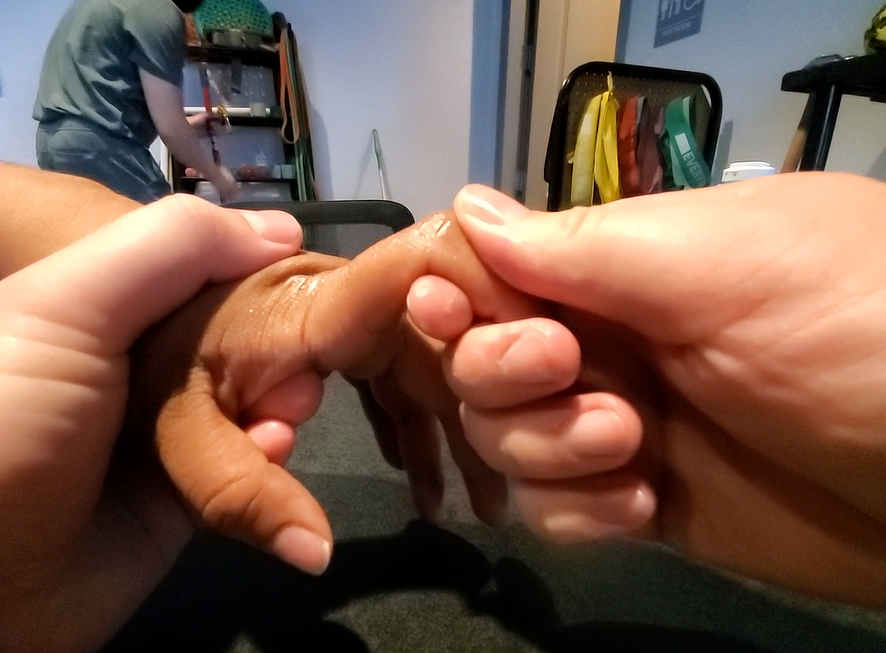Hand Therapy
Hand therapy is a vital component of rehabilitation for individuals with hand and upper extremity conditions. Hand therapy helps patients regain their independence and improve their quality of life.


Hand therapy is a type of rehabilitation that focuses on restoring function and mobility to the hand, wrist, and arm. It’s performed by occupational therapists or physical therapists who have specialized training in treating conditions affecting the hands and upper extremities (shoulder, arm, elbow, forearm, wrist and hand). They go through an additional 3000 hours of education and are often referred to as Certified Hand Therapists (CHTs). Hand therapy is typically used to help patients recover from injuries or surgeries that affect these areas, but hand therapy can help with ALL types of pain or impairment in the upper body. Hand therapy may involve a variety of techniques, including exercises, stretching, and manual therapy. A hand therapist may also use splints or other devices to help support or immobilize the affected area. The goal of hand therapy is to help patients regain their strength and independence so that they can return to their normal activities as quickly as possible.
Hand therapists bridge the gap from medical management of upper extremity conditions to successful recovery, allowing individuals to function normally in their daily lives. Hand therapists provide non-operative interventions, preventative care and post-surgical rehabilitation for a wide variety of upper extremity disorders, from simple fingertip injuries to complex replanted extremities. Patients with chronic conditions, such as arthritis, or neurologic conditions, such as a stroke, can benefit from therapy through education on joint protection and energy conservation, and with recommendations for adaptive equipment or devices to improve function. A hand therapist can also be a consultant in the industrial world, training employees in healthy work habits.
Hand therapy can be beneficial for a wide range of conditions, including but not limited to:
Hand Therapy begins with a thorough assessment of your condition including a physical examination and discussion of your therapy goals. Based on the assessment, your personalized treatment plan will be developed, outlining the specific modalities and exercises needed. The exercises assigned are designed to improve strength, flexibility, and coordination. This may include stretching, strengthening exercises, and fine motor activities.
Hand therapy might include massage and joint mobilization to help improve movement and reduce pain. Your therapy will end with your therapist teaching you how to care for your hands at home, including exercises and ergonomic advice. For special circumstances, custom splints may be made to protect injured areas, improve alignment, or enhance function.
Hand therapy is a vital component of rehabilitation for individuals with hand and upper extremity conditions. By focusing on restoring function, reducing pain, and preventing further injury, hand therapy helps patients regain their independence and improve their quality of life. If you or someone you know is experiencing hand-related issues, contact Optimal Therapy 702-564-6712 for a successful recovery.
If you want to skip the wait, you can reach our scheduling team Monday through Friday from 9am – 5pm.